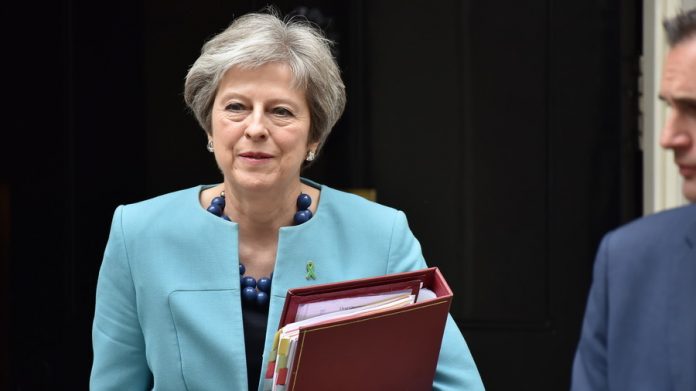Teachers, nurses and police officers to be held accountable for failing to “spot warning signs”.
Theresa May will host a youth violence summit in Downing Street on Monday, following a spate of stabbings across the country in recent weeks.
The emergency meeting will coincide with the announcement of government plans to hold teachers, nurses and police officers accountable for failing to “spot warning signs” of violent crime among young people.
The government said these could include “presenting in A&E with a suspicious injury, to worrying behaviour at school or issues at home”.
A consultation will assess the extent to which those on the front line will be held to account for failing to prevent a young person getting involved in violence, a Home Office spokesman said.
More than 100 experts will meet this week to explore the scope and impact of new ideas while kick-starting a further programme of action.
They include Met Police Commissioner Cressida Dick, Patrick Green from the Ben Kinsella Trust, and Baroness Newlove, the Victims’ Commissioner for England and Wales, whose husband Garry was beaten to death by a gang vandalising his car in 2007.
The PM will also meet privately with the families of a number of victims of knife crime to listen to their first-hand experiences of this issue, the Press Association reports.
May said: “To bring about lasting change and protect young people from the tragic violence we have seen on our streets, we need to work across society to intervene early and stop them from being drawn into crime.
“Strong law enforcement plays an important role, and the police will continue to have our support on the front line, but we all need to look at what we can do in our communities, and in every part of the system, to safeguard young people.
“That is why our plans to introduce a whole community – or ‘public health’ – approach are designed to identify more young people at risk.”
Home secretary Sajid Javid floated the idea of a so-called “public health duty” in an effort to ensure “every part of the system works together to support young people”.
It comes a day after Javid granted police new powers to increase stop and search activity following a spate of bloodshed across London and the rest of England since the start of 2019.
Javid said: “Violent crime is like a disease rotting our society and it’s essential that all public bodies work together to treat the root causes.
“The public health, multi-agency approach has a proven track record and I’m confident that making it a legal duty will help stop this senseless violence and create long-term change.
“I’m committed to ending this scourge and will use all the tools at my disposal to do so.”
The consultation, mooted by Javid in the Commons four weeks ago, will open on Monday to the public and professionals across the UK and will run until May 28.
It follows days of violence across the country, including a slew of serious stabbings in Edmonton, north London, from Saturday night into Sunday morning, as well as the death of a 40-year-old motorist at the wheel of his vehicle in Clapham, south west London, and a 29-year-old fatally stabbed on Thursday afternoon in Toxteth, Liverpool.
May came under fire last month after she suggested that police cuts were not to blame for a spate of fatal stabbings on teenagers.
Senior figures in policing were at odds with the prime minister as they called for a reverse to slashes in staffing levels.
On Monday, Mike Cunningham, chief executive of the College of Policing, welcomed recent announcements on extra measures and funding, but warned against the assumption that “with more resources, policing alone can solve this problem”.
However, Royal College of Nursing acting chief executive and general secretary Dame Donna Kinnair said the move could put greater pressure on frontline staff.
She said: “With almost 40,000 nursing vacancies in England alone, nurses are already concerned about providing safe and effective care with such widespread staff shortages.
“Nursing staff already have a key role in safeguarding patients, whether that’s working in the community, in schools or in hospitals and it’s unclear how putting a further obligation on our members, already working incredibly hard to do all they can for patients, will prevent violent crime.”
Javed Khan, boss of children’s charity Barnardo’s, said the Downing Street summit “must look at long-term solutions” and commit public funding to tackle violence.
He said: “We need a concerted effort to tackle the profound ‘poverty of hope’ amongst vulnerable children and young people who see little or no chance of a positive future.”








